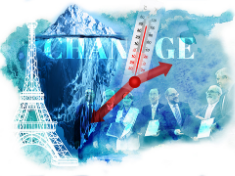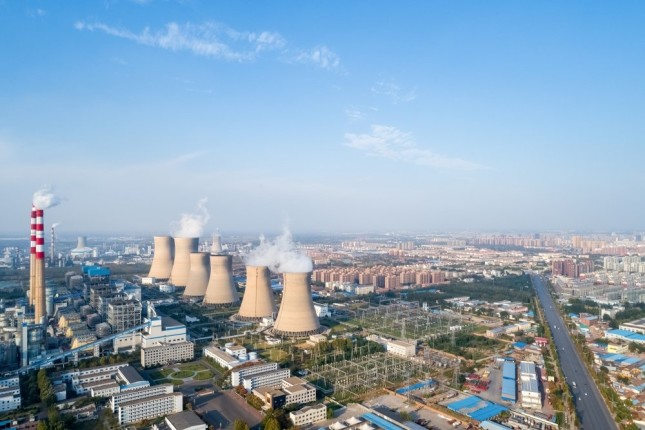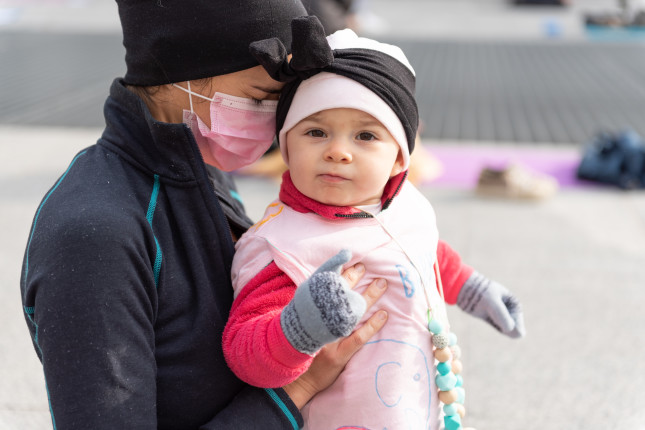-
“Climate is the Multilateral Challenge of the Moment”: Highlights from a Conversation on Climate Change, Multilateralism, and Equity
› “After a period of populist nationalism…multilateralism is back, and climate is the multilateral challenge of the moment,” said David Lammy, a member of Parliament for Tottenham in the United Kingdom and Shadow Secretary of State for Justice, in a recent 21st Century Diplomacy event, co-hosted by the Wilson Center and adelphi. The election of Joe Biden and Kamala Harris is not a “reset,” but rather a catalytic moment for the international community precisely because of the pandemic and consequences for the global economy, he said. When you look at who has been left behind in countries like the United States and United Kingdom, and globally, who is at risk climate impacts, it is “black and brown people suffering all over the planet, and that is a call to arms,” said Lammy.
“After a period of populist nationalism…multilateralism is back, and climate is the multilateral challenge of the moment,” said David Lammy, a member of Parliament for Tottenham in the United Kingdom and Shadow Secretary of State for Justice, in a recent 21st Century Diplomacy event, co-hosted by the Wilson Center and adelphi. The election of Joe Biden and Kamala Harris is not a “reset,” but rather a catalytic moment for the international community precisely because of the pandemic and consequences for the global economy, he said. When you look at who has been left behind in countries like the United States and United Kingdom, and globally, who is at risk climate impacts, it is “black and brown people suffering all over the planet, and that is a call to arms,” said Lammy. -
Māori Midwives on the Power of Indigenous Birthing Practices
› Camille Harris, Registered Māori Midwife, is unapologetic about her decision to study midwifery and practice exclusively with Māori families, in this week’s Friday Podcast. “It was always to serve my people,” she said. Both Harris and her professional partner, Registered Māori Midwife, Waimaire Onekawa, started their midwifery careers later in life with a clear dedication to Māori women in New Zealand. “And we just want to be able to give women—Māori women—and whanau [family], the love and care that we would hope to receive if we were the people being the recipients,” said Onekawa.
Camille Harris, Registered Māori Midwife, is unapologetic about her decision to study midwifery and practice exclusively with Māori families, in this week’s Friday Podcast. “It was always to serve my people,” she said. Both Harris and her professional partner, Registered Māori Midwife, Waimaire Onekawa, started their midwifery careers later in life with a clear dedication to Māori women in New Zealand. “And we just want to be able to give women—Māori women—and whanau [family], the love and care that we would hope to receive if we were the people being the recipients,” said Onekawa. -
China, Japan, and Korea: “Cleaner” Than the Worst Coal Plants, but Nowhere Near “Clean” Energy
›
The convergence of environmental pressures and economic recession due to the COVID-19 pandemic makes the future of international finance for coal-fired power plants increasingly uncertain. Environmental advocates have long been concerned about international coal investments locking host nations into decades of harmful air pollution and carbon dioxide emissions that cause global climate change. Now, the future of these planned coal plants is at a crossroads.
-
Closing the Loop on Fashion Waste: Q&A with Evrnu cofounder Stacy Flynn
›
Stacy Flynn is intimately familiar with the ins and outs of fashion’s supply chain. She knows how clothes travel the world as they move through the stages of design, textile production, and garment formation before landing in your local retail store. For years, she managed these supply chains for Dupont and Target, making regular visits to suppliers in China who showed her pristine manufacturing facilities where she examined textile and clothing samples and discussed prices and delivery. Nothing could have prepared her for when she returned in 2010 with a Seattle-based startup to tour smaller textile and dyeing factories, and saw the staggering pollution these second and third tier suppliers generated. Her guides told her that during periods of increased textile production, wastewater emissions turn the rivers deep unnatural hues and factory exhaust smothered the air outdoors and even indoors for the workers.
-
Shaping a Maternal Mental Health Crisis Response to COVID-19
›
As the number of confirmed COVID-19 cases and deaths rise, women are experiencing more anxiety both during and after pregnancy. One-third of all mental health problems are associated with adverse childhood and community experiences—the pandemic is an adverse community experience being felt worldwide.
-
How U.S. Arctic Policy and Posture Could Change Under President-elect Biden
›
Truth, trust, and transparency are key aspects to sound and sustainable governance of the Arctic, said Ulf Sverdrup, Director of the Norwegian Institute of International Affairs. He was one of a panel of experts who spoke on Nov. 30 at “The Arctic in a Post-Election World,” the first event in a two-part series sponsored by the Wilson Center’s Polar Institute.
-
The First Political Order: How Sex Shapes Governance and National Security Worldwide (Book Launch)
›
“What you do to your women you do to your nation state. And so, if you decide to curse your women, we argue that you will curse your nation state as well,” said Valerie Hudson, University Distinguished Professor and Holder of the George H.W. Bush Chair at the Bush School of Government and Public Service at Texas A&M University, at the launch of The First Political Order. Co-authored by Hudson, Donna Lee Bowen, Professor Emerita at Brigham Young University, and P. Lynne Nielson, Professor of statistics at Brigham Young University, The First Political Order is the culmination of 2 decades of research on the linkages between the status of women and the status of nation-state security.
-
Midwife-Delivered Interventions Could Provide Dramatic Benefits
› In a year that has presented enormous challenges, it is even more gratifying to present evidence that strengthens the importance of midwives as providers of essential sexual and reproductive health (SRH) services and the impact they can have on maternal and neonatal mortality and stillbirths, said Anneka Knutsson, Chief of the SRH Branch at the United Nations Population Fund (UNFPA) at a recent Wilson Center event, in partnership with UNFPA and Johnson & Johnson, to launch the Impact of Midwives study conducted by UNFPA, the International Confederation of Midwives (ICM), and the World Health Organization (WHO) and published in The Lancet Global Health.
In a year that has presented enormous challenges, it is even more gratifying to present evidence that strengthens the importance of midwives as providers of essential sexual and reproductive health (SRH) services and the impact they can have on maternal and neonatal mortality and stillbirths, said Anneka Knutsson, Chief of the SRH Branch at the United Nations Population Fund (UNFPA) at a recent Wilson Center event, in partnership with UNFPA and Johnson & Johnson, to launch the Impact of Midwives study conducted by UNFPA, the International Confederation of Midwives (ICM), and the World Health Organization (WHO) and published in The Lancet Global Health.
 A Publication of the Stimson Center.
A Publication of the Stimson Center.

 “After a period of populist nationalism…multilateralism is back, and climate is the multilateral challenge of the moment,” said David Lammy, a member of Parliament for Tottenham in the United Kingdom and Shadow Secretary of State for Justice, in a recent
“After a period of populist nationalism…multilateralism is back, and climate is the multilateral challenge of the moment,” said David Lammy, a member of Parliament for Tottenham in the United Kingdom and Shadow Secretary of State for Justice, in a recent 




 In a year that has presented enormous challenges, it is even more gratifying to present evidence that strengthens the importance of midwives as providers of essential sexual and reproductive health (SRH) services and the impact they can have on maternal and neonatal mortality and stillbirths, said Anneka Knutsson, Chief of the SRH Branch at the United Nations Population Fund (UNFPA) at a recent Wilson Center event, in partnership with UNFPA and Johnson & Johnson, to launch the
In a year that has presented enormous challenges, it is even more gratifying to present evidence that strengthens the importance of midwives as providers of essential sexual and reproductive health (SRH) services and the impact they can have on maternal and neonatal mortality and stillbirths, said Anneka Knutsson, Chief of the SRH Branch at the United Nations Population Fund (UNFPA) at a recent Wilson Center event, in partnership with UNFPA and Johnson & Johnson, to launch the 

